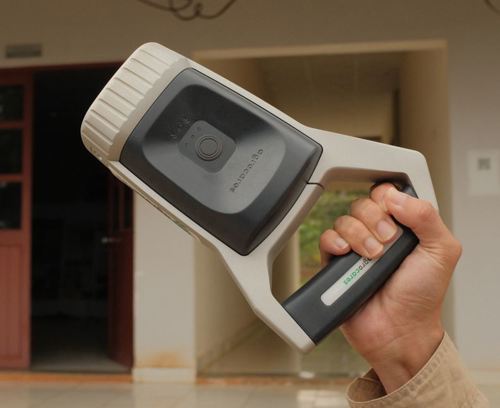13/05/24
Nurturing soil health in Vietnam
It is vital to maintain soil health in order to successfully grow high-yielding, high quality coffee. In order to do so, soil health must be monitored regularly, and inputs may be added to improve productivity. In Vietnam, soil health has been diminishing due to overproduction and the overuse of mineral fertilizers, irrigation water and synthetic pesticides. This has led to biodiversity loss, soil acidification, and an increase in soil diseases. Erosion is another serious threat, which occurs after heavy rainy seasons, when the topsoil, rich with nutrients, is washed away, depleting the soil’s health. With unhealthy soil, productivity decreases and farmers incur profit losses.
The SMS team in Vietnam have been working to reverse this, through structured trainings, refining their soil health and nutrition projects, and creating an impressive soil program catered to each individual farmer certified through their system.
Thuận Sarzynski, SMS Manager in Vietnam, notes that soil health is important in all agricultural systems, including the coffee agroecosystems in Vietnam. The ACOM/SMS team have been working diligently to create new programs for farmers to assist with maintaining soil health. Yearly trainings are provided to certified farmers, and there are two specific projects funded by JDE/IDH and Nestlé providing organic fertilizer, soil amendments and pH improvers to the soil. ACOM also have a research project funded by the EU and coordinated by CIRAD (French Agricultural Research Centre for International Development) to better understand how farmers are utilizing fertilizers and the overall fertilizer market.
Additionally, ACOM/SMS have invested in 10 soil scanners from Agrocares, with support from Nestlé to analyse the soils at a large scale. According to Thuận, the tool “uses infrared spectrophotometry to analyse soil organic matter, pH, NPK, Ca, Mg and other nutrients.” (Input photo of tool above this section or below). After the soil is sampled, the scanner takes 2 minutes to process the analysis and provide a fertilizer recommendation. So, each soil sample receives a unique prescription of fertilizer, which is quite impressive. The SMS agronomists will then assist with allocating these fertilisers, which are available in the SMS warehouse.

The SMS team have already scanned the soil from 960 farms and have goals to double this number by the end of the year to improve soil health and overall productivity within more farms. This will allow for a tailored fertiliser list to be created for each individual farm, rather than a blanket NPK mixture that may not be helpful. These fertilisers are dispersed, some of which are subsidized including organic fertilizer and calcium-based fertilizers. Through SMS, 20% of the fertilizer costs are subsidized, and the farmer is subsequently responsible for the remaining 80%. The farmer then follows the fertilization plan/schedule to begin improving the farm’s soil health.
Some other methods the SMS team have enacted to combat the depleting health of soil in Vietnam include other inputs such as the usage of bio-inoculants and Nitrogen-fixing crops. Through the carbon project, SMS have dispersed shade trees that fix Nitrogen in addition to cover crops that provide Nitrogen to the soil, whilst also acting as a form of green manure, protecting the soil from erosion.
Without regularly monitoring soil health, and maintaining inputs, soil heath would diminish, and production would drop. Thanks to the efforts of the SMS team in Vietnam, they are working to create a stable and resilient soil future for coffee.
More news
Research
Click to read this articleCMPs significantly decreased deforestation in the most at-risk protected areas in Africa since 2000
This article explores collaborative management partnerships (CMPs) between state wildlife authorities and nonprofit conservation organizations to manage protected areas (PAs) have been used increasingly across Sub-Saharan Africa since the 2000s.
Insights
Click to read this articleThe Cocoa Price - A Key Factor for a Living Income for Farmers
SWISSCO has published a brief regarding perspectives and solutions regarding the price of cocoa and how it is relevant for a living income for farmers.
Insights
Click to read this articleECOM's Green Meter
We are pleased to announce the official rollout of our internal carbon calculator, Green Meter, which has been third-party reviewed by SustainCERT.
Research
Click to read this articleClimate-Smart Agriculture and Agroforestry in Cocoa
This guidance document was published by SWISSCO and focuses on approaches, financing needs and opportunities as well as providing high level guidance for stakeholders in the cocoa sector seeking to establish a broad range of actions that take the complexity of crop- and site-specific impacts of climate change and the realities of smallholder cocoa farmers into account.
Insights
Click to read this articleBeginners guide to Carbon Credits
This report provides an overview of the Voluntary Carbon Market (VCM), from what it is to the roles of carbon standards, governments, and Indigenous Peoples in the VCM.
Research
Click to read this articleGoogle Earth Engine, an innovative technology for forest conservation
This report explores how Google Earth Engine (GEE) can and has been used as a land monitoring tool to help enforce forest protection laws, co-authored by ECOM's SMS Manager Coffee, Thuan Sarzynski.
Research
Click to read this articleIncome study of cocoa producing households in Ghana
The Swiss Platform for Sustainable Cocoa (SWISSCO), in collaboration with the Ghana Cocoa Board (COCOBOD) and other partner institutions such as FiBL and HAFL, conducted a joint study to assess the current income situation of cocoa farming households in Ghana.
Stories
Click to read this articleLiving Income in Latin America: Towards a Prosperous Future
The Living Income Community of Practice hosted the annual in-person workshop and learning journeys in Colombia during the week of the 4th of November.
Research
Click to read this articlePrinciples for Regenerative Landscapes — Circular Bioeconomy Alliance
This report advocates for a transition to a circular bioeconomy supporting biodiversity and human well-being through 10 key principles.